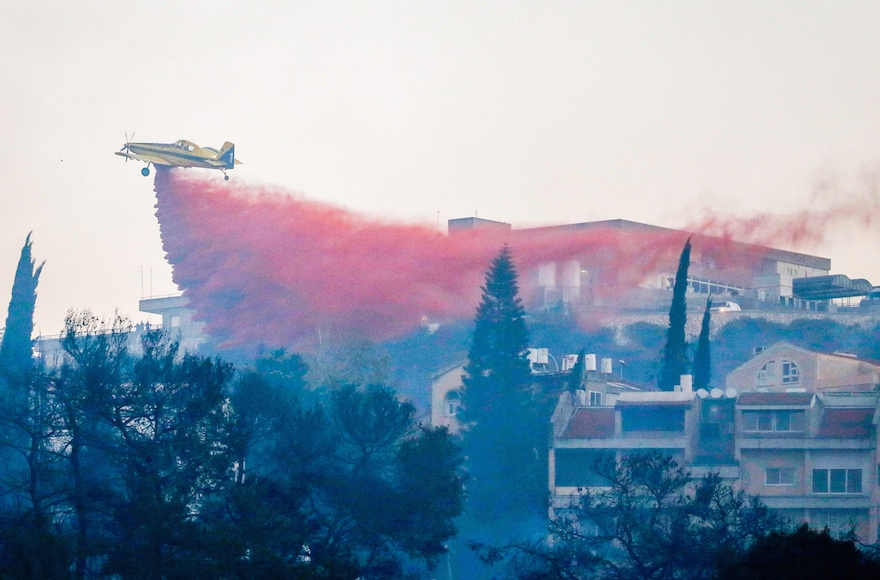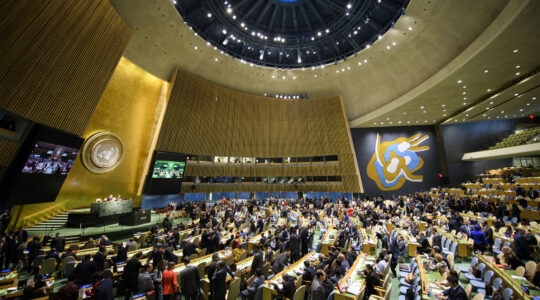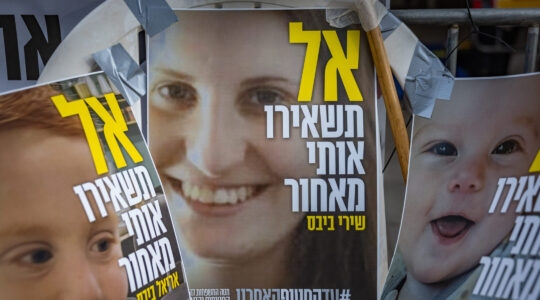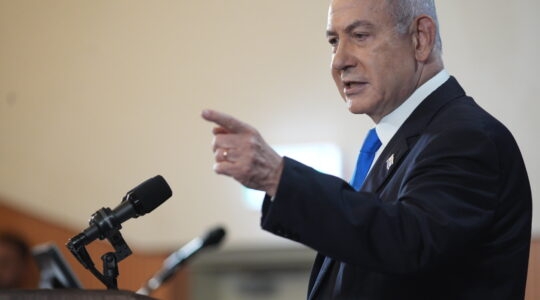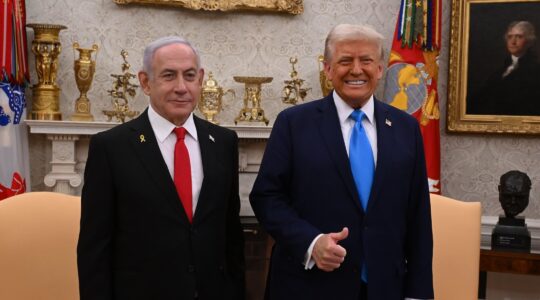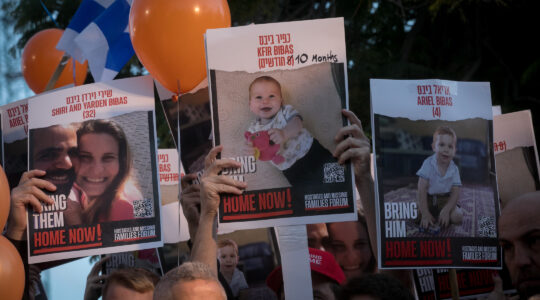TEL AVIV (JTA) – As wildfires threatened Israel last week, rhetoric linking arson to terrorism heated up.
For about a week, fires across the country burned huge swaths of land, destroyed hundreds of homes and businesses, and forced tens of thousands of people to flee. Dozens were injured, though few seriously.
As the blazes raged, Prime Minister Benjamin Netanyahu said several times that those set by arsonists amounted to acts of terrorism. He and other ministers in his government pledged to work to revoke the residency of those found guilty — a threat typically reserved for Arab Israelis.
“Every fire caused by arson, or by incitement to arson, is terrorism,” Netanyahu told reporters last month at a briefing in Haifa, a northern city where tens of thousands were evacuated from their homes. “Anyone who tries to burn parts of the State of Israel will be punished severely.”
Netanyahu was not alone in apparently singling out Israel’s Arab residents and citizens. Interior Minister Aryeh Deri and Culture Minister Miri Regev both threatened last month to revoke the citizenship of arsonists.
Meanwhile, Education Minister Naftali Bennett described the blazes as “terrorism in every sense of the word.” And Bennett and Defense Minister Avigdor Liberman called for expanding West Bank settlements in response to the supposed terror wave.
But now that the fires have been stamped out by the heroic efforts of Israeli firefighters and rain has finally come, it appears that some of the claims about terrorism may have been premature. Amid ongoing investigations, fire and security officials investigating the blazes have been much more cautious about drawing conclusions than Netanyahu and his government partners.

Prime Minister Benjamin Netanyahu, at microphone, surrounded by security and government officials, speaking at a briefing in Haifa about the fires raging in the northern city and elsewhere in Israel, Nov. 24, 2016. (Amos Ben Gershom/Israeli Government Press Office)
“In most areas you won’t find many things that say whether it was arson,” Ran Shelef, the Fire and Rescue Authority’s chief investigator, told The Jerusalem Post on Sunday.
A day earlier, the authority’s Northern District investigator Herzl Aharon said, according to Israel’s Channel 2: “We still don’t know anything. I wish I had a direction. I go to a place and get an insight — and then I go to another place and everything changes. This is what you call a illusion of the topography, the bedlam of the mountainous region, and it is very difficult to investigate.”
At least 35 people were arrested on suspicion of committing arson or inciting others to do so, mostly Palestinians and the rest Arab Israelis. But by Saturday, only 10 remained in custody for suspected arson, with the rest released unconditionally, Channel 2 reported.
Only two suspects have been indicted, and one claims he was just burning garbage. And though no one doubts there was some arson involved, motives remain unclear.
“It’s still too early to rule nationalistic motives,” police officials told Channel 10 on Tuesday. “Yes, there were incidents of arson, but nationalistic motives are far from being definitively concluded.”
In the absence of proof, some have criticized the rush to judgment.
“The habit of inflaming the atmosphere by politicians is playing into the hands of the terrorists,” Yoram Schweitzer, a former Israeli intelligence official and the head of terrorist research at the Institute for National Security Studies think tank, told JTA. “A basic principle of fighting terrorism is to differentiate between the community who is allegedly or potentially supportive of such acts and the terrorists themselves.
“This is the first principle that was breached,” he added.
On Monday, Ayman Odeh, the head of the Joint List, a coalition of Arab political parties, said he would seek to have Netanyahu investigated for incitement for seeming to accuse Arab Israelis of deliberately setting fires. Odeh said he would formally request a probe by the attorney general.
“Everyone knows that there wasn’t a wave of terrorism, there wasn’t a ‘fire intifada,'” he said, using a term some Israeli media outlets had put in their headlines.
Police officials have said they suspect arson in 29 of the 39 major fires, and in about one-third of the 90 total fires they investigated. There are no suspects in the large fires in Haifa and Zichron Yaakov, nor clear proof of arson.
A military court on Thursday released a Palestinian man arrested on suspicion of politically motivated arson in the West Bank after he explained he was burning trash and put the fire out afterward. An Arab Israeli man who was arrested and held for three days on suspicion of inciting arson was released last week after police admitted they had mistranslated his sarcastic Facebook post. The post was meant to condemn those supporting arson on social media and ended with the hashtag “Sarcastic, not serious.”

An Israeli firefighter trekking through a forest burned by a massive fire in Haifa, Nov. 25, 2016. (Gili Yaari /Flash90)
Orit Perlov, who researches Arab social media at the Institute for National Security Studies, said self-critical humor became the dominant tone on Arab social media as the fires in Israel raged. Initially, she said, there was widespread rejoicing and talk of divine punishment under the Arabic hashtag “Israel is burning.”
But especially after the Palestinian Authority sent firefighting help and some Arabs publicly condemned the arsonists, people began asking questions like, “If it’s coming from God, what did we do wrong to explain what’s happening in our states?” she said.
Schweitzer, the terrorism researcher, said it was noteworthy that the arson had flamed out despite the incendiary comments by Israeli politicians. Among other reasons, he said, that was because Arab Israelis are “part of the victims and part of Israeli society.”
“Instead of calming the population, which is the task of leaders, Israeli politicians did the reverse and claimed an ‘arson intifada,'” he said. “That’s just not wise, to put it very mildly.”
JTA has documented Jewish history in real-time for over a century. Keep our journalism strong by joining us in supporting independent, award-winning reporting.
